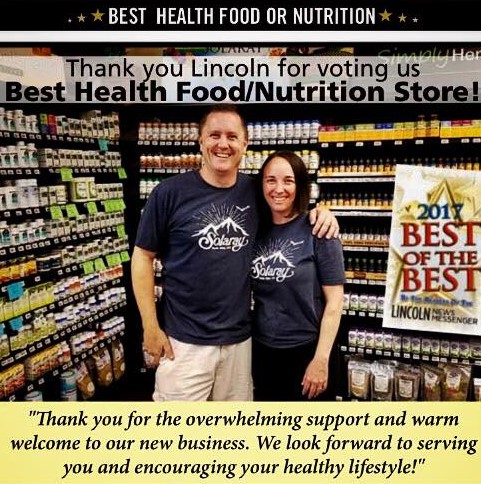How Our Ancestry Affects Our Health
Many people don’t realize how much their ancestry effects their overall health and wellness, not just the color of their eyes, hair, and skin. The DNA that we share with our family members has a direct impact on our bodies too.
We’ve all been asked at the doctor’s office if there are any health issues in our families, and most of us think about our parents, grandparents, or maybe that one cousin that could have had diabetes, but you can’t quite remember.
Did you know that our great grandma’s mother’s health impacts our health today? Most of us know that we can reduce our risk of disease by eating a healthy diet, getting enough exercise, and not smoking. But did you know that your family history might be one of the strongest influences on your risk of developing heart disease, stroke, diabetes, or cancer?
Even though you cannot change your genetic makeup, knowing your family history can help you reduce your risk of developing health problems. If you want to know more about this and what you can do to take even better care of your health and wellbeing, then this is the blog post for you.
How To Understand Your DNA & What To Do About It
In cases like these we look to epigenetics. Epigenetics is the study of molecular changes that don’t alter our DNA code but influence which genes are able to express themselves. Gene expression controls how the genetic codes get translated into proteins in the body. These proteins are essentially the worker bees of the body and include enzymes vital for all life functions. They are also hormones that act as messengers, traveling throughout the body to direct our bodily functions and even down to our moods.
Epigenetic researchers have discovered that environmental stress is a key factor behind harmful molecular changes happening in our bodies. The stress can run the gamut from poor diet, noxious chemicals, psychological strain, and everything in between.
One 2016 paper based on data from the Department of Veterans Affairs found a molecular signature linking psychological states to coronary heart disease. The Boston-based researchers found that positive and negative mental states affect DNA methylation, switching on or off the genes that cause hardening of the arteries.
What’s interesting about recent research is the discovery that epigenetic tags can be transmitted across generations, potentially harming descendants down the line. This discovery shook up a century-old belief that said an individual’s DNA code essentially determines how traits are passed on. Epigenetics is now saying there’s more than just the code that can be inherited.
There is a growing body of research that shows psychological stress can result in epigenetic changes that have negative effects on the body. Medical professionals have long understood there’s a link between stress and disease but haven’t known how that link works. The evidence currently points to epigenetics as a mechanism for bringing on chronic disease.
So, what can we do to educate ourselves and take the steps to ensure we are as healthy as possible?
To learn about your family history:
-
- Ask questions
- Talk at family gatherings
- Get your DNA tested to see where you descend from
Collect information about your grandparents, parents, aunts, uncles, nieces, nephews, siblings, and children. The type of information to collect includes:
-
- Major medical conditions and causes of death
- Age of disease onset and age at death
- Ethnic background
Write down the information and share it with your doctor. Your doctor will:
-
- Assess your disease risk based on your family history and other risk factors
- Recommend lifestyle changes to help prevent disease
- Prescribe screening tests to detect disease early
For example:
- Ashkenazi Jewish people have a higher risk of carrying the BRCA gene mutation than other populations. They are also genetically predisposed to Tay-Sachs disease
- Caucasians have higher rates of cystic fibrosis
- African Americans have a higher risk of inheriting sickle cell anemia and cardiovascular disease
- Studies of World War II famine survivors who endured the Dutch Hunger Winter showed that starvation of the fetus at very early stages of development may have predisposed the children to obesity as adults, their bodies compensating for the early deprivation.
Ancestry and ethnicity alone don’t determine if you will develop a disease. But you and your doctors can use both as a part of a personalized toolkit to assess your risk — and to do something about it.
The latest genealogical research has found a heritability factor for lifespan of only 7%, meaning that more than 90% of your lifespan phenotype will be affected by the life you lead, not the genes you were born with.
Our health and wellness are affected by countless factors over the course of our lives, from the relationships we choose (and the in-laws we don’t), to the food we eat, to the jobs we pursue, to the stress we experience, to the relaxation we practice, and to the ability we have to express our emotions. Next time you’re looking back through your family history and begin to worry about how your longevity, remember that you have much more control over your lifespan than you think!
Thank you for reading and let us know if you have any questions.

p.s. Just in case you are looking for a specific supplement solution, or any other wellness need, reach out to us here at 916-253-9276 and we would be happy to help you find exactly what you are looking for.
We are deeply committed to sharing our knowledge of health and therefore have carefully chosen the products we offer in our store. You’ll find only the highest quality brands and a large selection to choose from so you’re sure to find exactly what you need.
If you can’t make it into the store, we’re always happy to deliver it to you because your health and happiness are our #1 priority!
We would love to get to know you better!
Drop a comment below and let us know more about you!


